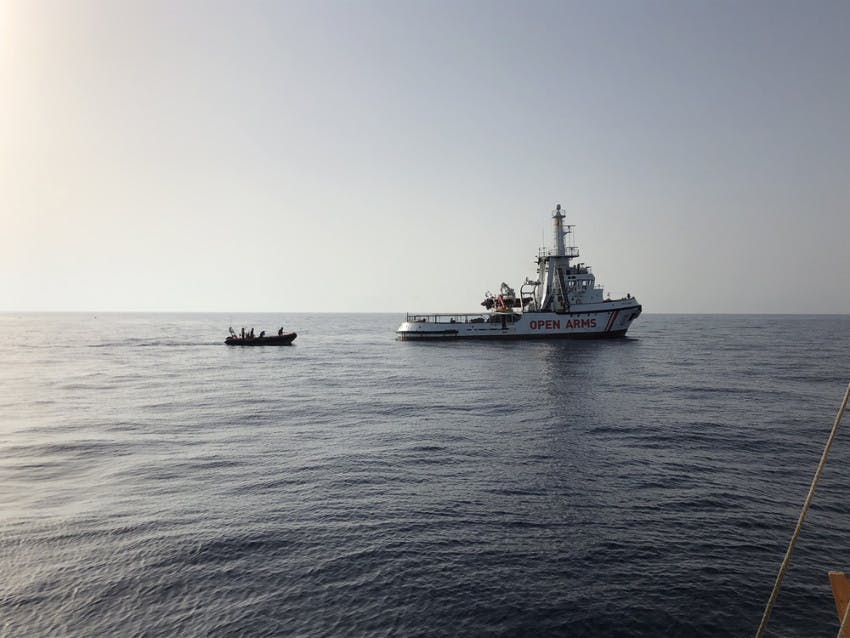2013
Migration in the Mediterranean has been a public issue in Europe since the Tunisian revolution led to a spike in arrivals in 2011. But in 2013, deaths at sea begin to command global attention. Nearly 45,000 asylum seekers and migrants cross the Central Mediterranean this year, and at least 707 die attempting the journey.
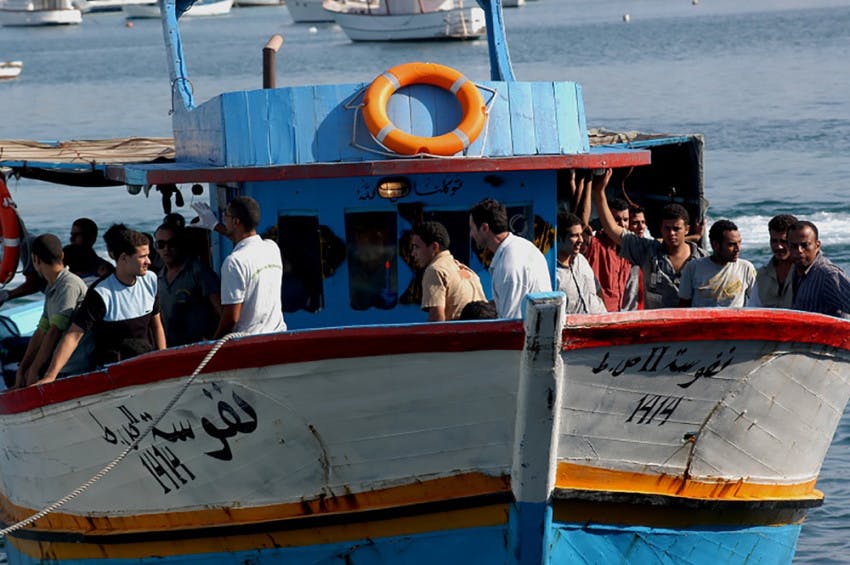
3 October 2013
368 people drown in a shipwreck within sight of the coast of the Italian island of Lampedusa. Stories told by survivors and photos of hundreds of coffins lined up on the island galvanise sympathy for asylum seekers and migrants risking their lives to cross the sea.
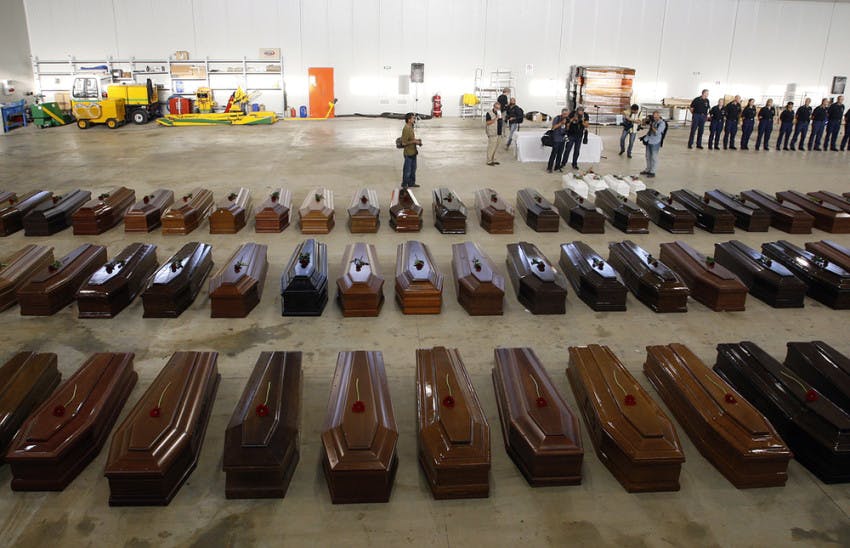
18 October 2013
Italy launches Mare Nostrum, the first state-sponsored naval mission dedicated to saving lives at sea. The mission costs nine million euros ($10.5 million) per month and runs until the end of October 2014. In a little over a year, Mare Nostrum is credited with rescuing over 150,000 people.
2014
Migration across the Central Mediterranean accelerates dramatically, driven by refugees fleeing Syria’s civil war, along with asylum seekers and migrants from elsewhere in the Middle East and Africa. Libya’s descent into chaos following its 2011 revolution allows smugglers to launch boats from the Libyan coast practically unimpeded. More than 170,100 asylum seekers and migrants arrive in Italy – compared to an average of around 25,000 per year over the past decade – and at least 3,165 die or go missing.
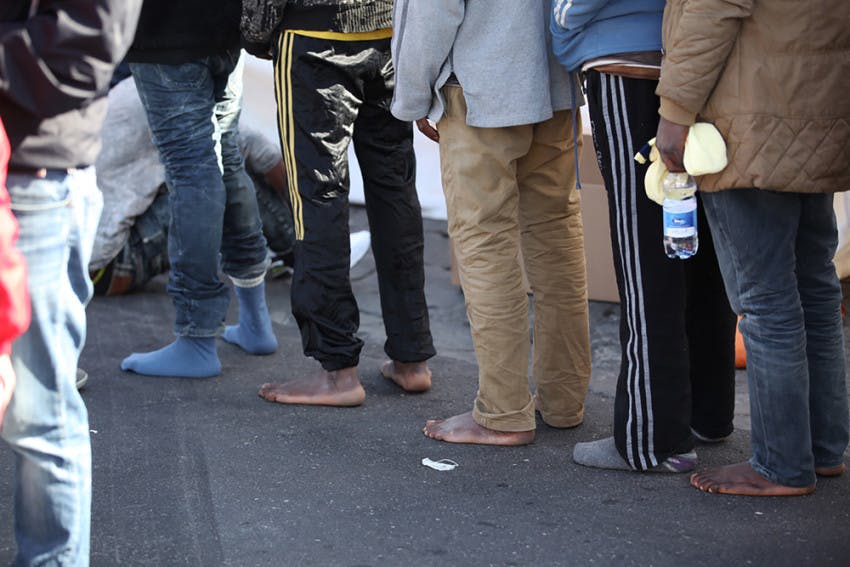
October 2014
Alarm Phone, an emergency telephone hotline for asylum seekers and migrants in distress at sea, is launched by activists and civil society groups in Europe and North Africa to report incidents, track how authorities respond, and publicise cases on social media in real time in an effort to create transparency and prevent human rights violations
1 November 2014
Mare Nostrum ends and is replaced by Operation Triton, run by the EU’s border and coast guard agency, Frontex. Triton’s main focus is border control and surveillance because of the unsubstantiated, but often repeated, claim that search and rescue efforts act as a “pull factor” encouraging people to cross the sea. Triton's fewer assets are also stationed further away from the Libyan coast, where most shipwrecks happen. Human rights groups warn that many lives will be lost.
2015
The main migration route to Europe shifts to the Aegean Sea as more than 850,000 people – mostly Syrian refugees – cross from Turkey to the Greek islands. Nearly 154,000 asylum seekers and migrants cross the Central Mediterranean to Italy, while at least 3,149 people disappear or lose their lives.
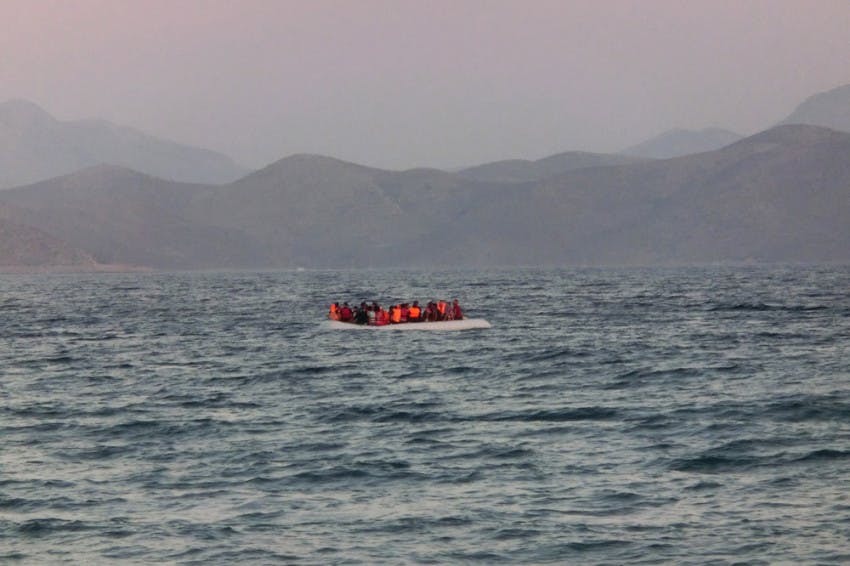
9 April 2015
Médecins Sans Frontières and the Migrant Offshore Aid Station (MOAS), a Malta-based NGO, launch a joint search and rescue operation in the Central Mediterranean to fill some of the gap left by the end of Mare Nostrum. During a previous mission between August and October 2014, MOAS rescued more than 3,000 people. It was the first NGO search and rescue mission in the Mediterranean. The two NGOs are soon joined by others.
22 June 2015
In response to public pressure following the 18 April shipwreck, the EU launches Operation EUNAVFOR MED, later named Operation Sophia. The mission, which operates alongside Triton, aims to disrupt people smuggling and human trafficking activities in the Central Mediterranean. While not its primary mandate, Operation Sophia is also tasked with carrying out search and rescue activities.
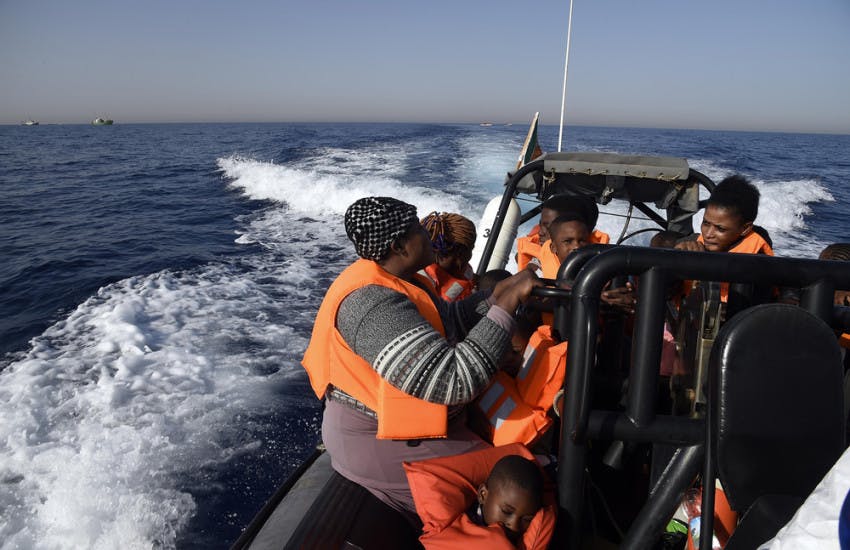
2 September 2015
A photo of Syrian toddler Alan Kurdi’s lifeless body on a Turkish beach goes viral. Alan Kurdi’s family was attempting to cross the Aegean Sea between Turkey and Greece. Kurdi’s photo catalyses a brief moment of global sympathy that once again puts a spotlight on the deaths of asylum seekers and migrants throughout the Mediterranean.
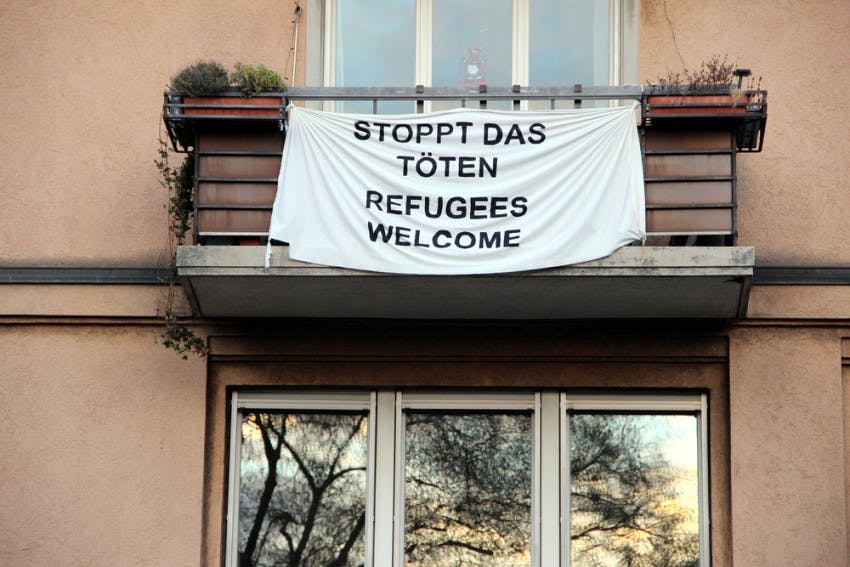
2016
A deal between the EU and Turkey effectively closes the Aegean route, shifting attention back to the Central Mediterranean. More than 180,000 asylum seekers and migrants cross the Central Mediterranean, and 4,581 die or go missing. Twelve boats operated by nine NGOs rescue more than 46,000 people. Meanwhile, right-wing political parties in multiple EU countries push hardline, anti-migration policies and rhetoric as they campaign for upcoming elections.
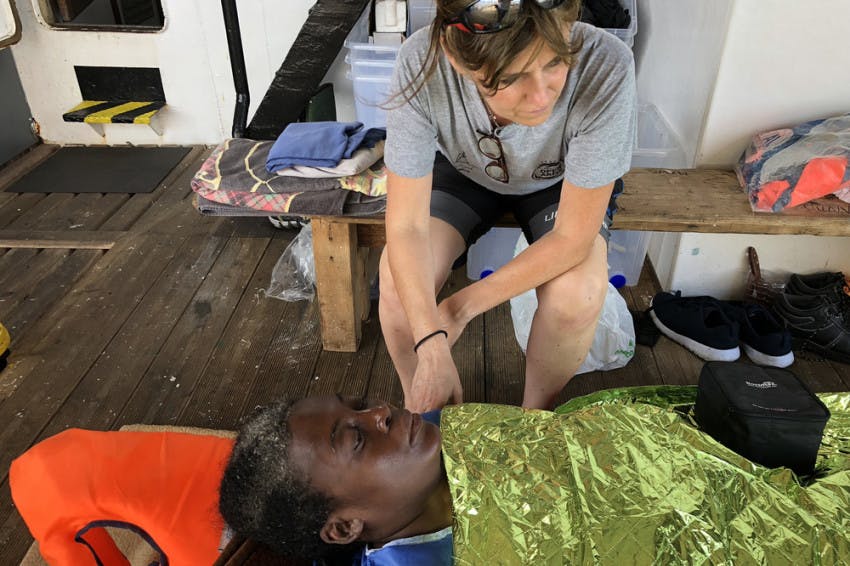
23 March 2020
Greece goes into a nationwide COVID-19 lockdown. The movement of refugees and asylum seekers in camps on the Greek islands and mainland is severely restricted, and asylum services are further suspended. The processing of asylum applications doesn’t begin again until the middle of May, and the camps remain in lockdown even as Greece begins to lift COVID restrictions and allows the return of foreign tourists during the summer.
2017
More than 119,369 asylum seekers and migrants cross the Central Mediterranean and at least 2,853 die or go missing. Italy and the EU double down on efforts to reduce the number of people crossing from Libya to Europe.
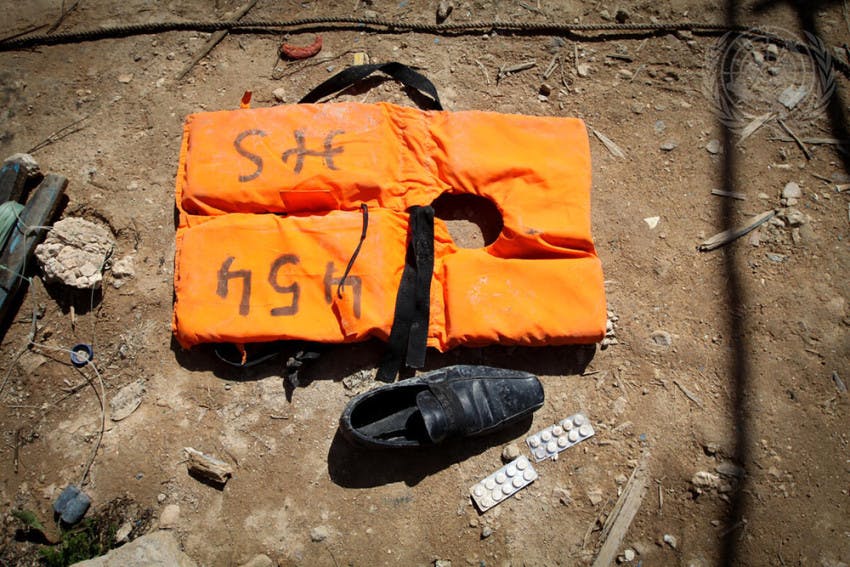
2 February 2017
Italy and Libya sign a Memorandum of Understanding to fight “illegal immigration”. Italy begins training, equipping, and funding the Libyan Coast Guard to intercept boats of asylum seekers and migrants. EU member states amend the mission of Operation Sophia to include training the Libyan Coast Guard, which intercepts approximately 20,000 people over the course of the year, returning them to detention centres where they are held indefinitely and face torture and extortion.
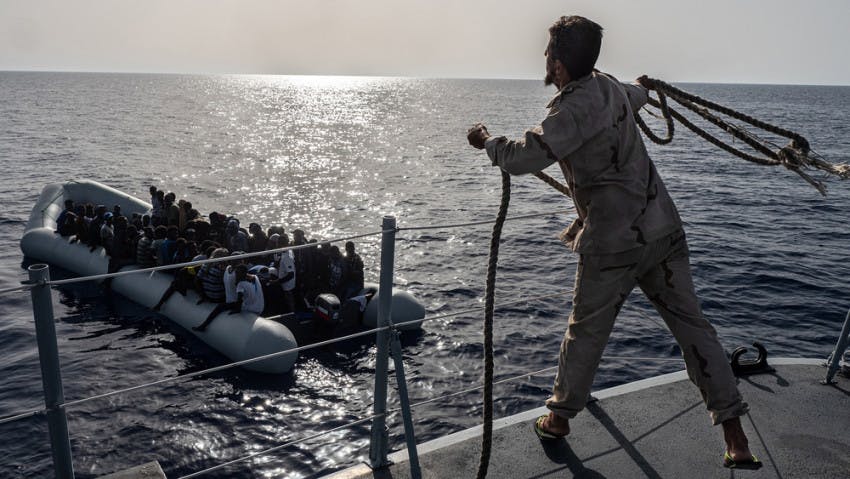
July - August 2017
The Italian government escalates its efforts to impede the work of search and rescue NGOs, asking all groups operating out of its ports to sign a Code of Conduct. Human rights groups say the code adds to unfounded suspicion of the NGOs and makes it harder for them to operate. By the time the Code of Conduct is finalised, only two of the nine NGOs active at the time refuse to sign.
22 May 2020
Documented evidence begins to mount showing that Greece is systematically pushing asylum seekers and migrants back from its land and sea borders, including by placing people on inflatable liferafts without motors and leaving them to drift in the Aegean Sea. The policy began in March after Turkey opened its borders. The Greek government denies the pushbacks are taking place.
2 August 2017
Italian authorities seize the Iuventa 10, a search and rescue boat operated by a German NGO, and accuse the crew of “aiding illegal immigration”. Between July 2016 and August 2017, Iuventa conducted 16 operations, rescuing over 14,000 people. The crew faces up to 20 years in prison. Italian prosecutors also open investigations into other search and rescue NGOs. These are eventually dropped but contribute to the politicisation and stigmatisation of NGO rescue efforts.
1 March 2020
Greece suspends access to asylum in the country for one month. The move is a response to Turkish President Recip Tayyip Erdoğan’s announcement at the end of February that Turkey will no longer prevent asylum seekers and migrants from leaving the country, creating a manufactured refugee crisis at the Greek-Turkish border.
2018
More than 24,000 asylum seekers and migrants arrive by sea in Italy and Malta and at least 1,314 go missing or die. The Libyan Coast Guard intercepts 14,949 asylum seekers and migrants at sea, returning them to detention centres in Libya.
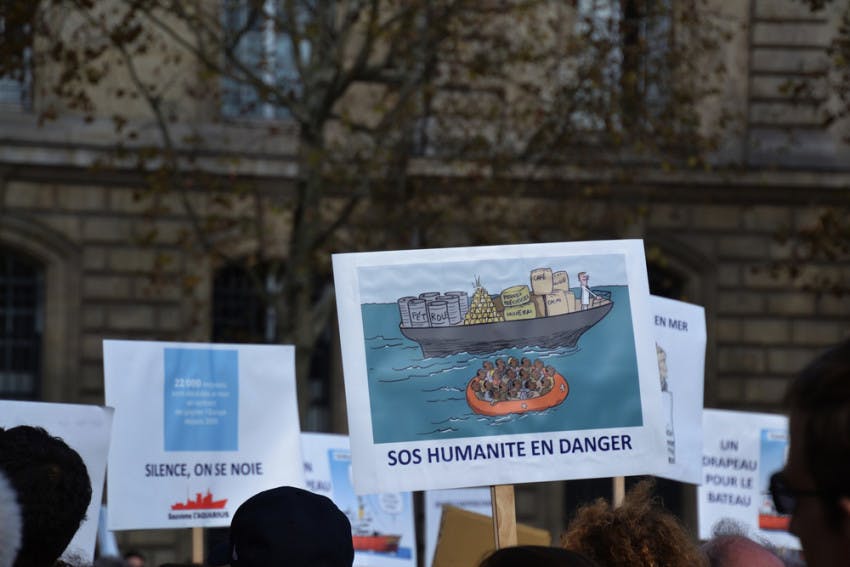
4 March 2018
Riding a wave of anti-migraton sentiment, a coalition of populist and far-right parties wins Italy’s national elections. In June, Matteo Salvini, leader of the far-right League party, and Italy’s leading proponent of hardline migration policies, becomes interior minister.
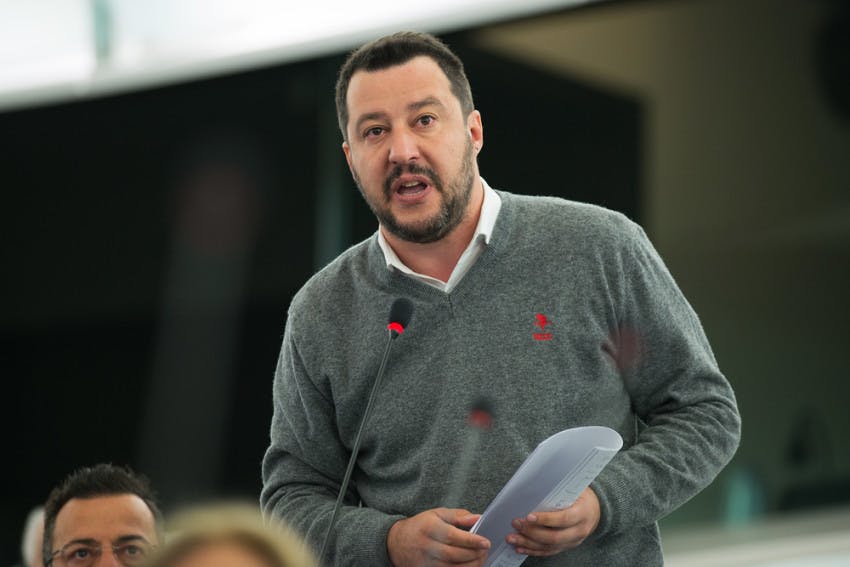
1 November 2019
The Greek parliament passes a new asylum law aimed at speeding up procedures and making it easier to return rejected asylum seekers to Turkey. Human rights groups criticise the law for expanding the grounds for rejecting asylum claims, normalising the use of detention, restricting asylum seekers’ access to legal assistance, and making it harder for rejections to be overturned on appeal. The law takes effect on 1 January 2020.
2019
More than 14,500 asylum seekers and migrants cross the Central Mediterranean, and at least 1,262 die or go missing. Despite the lower number of arrivals, migration remains a divisive and animating political issue in the EU.
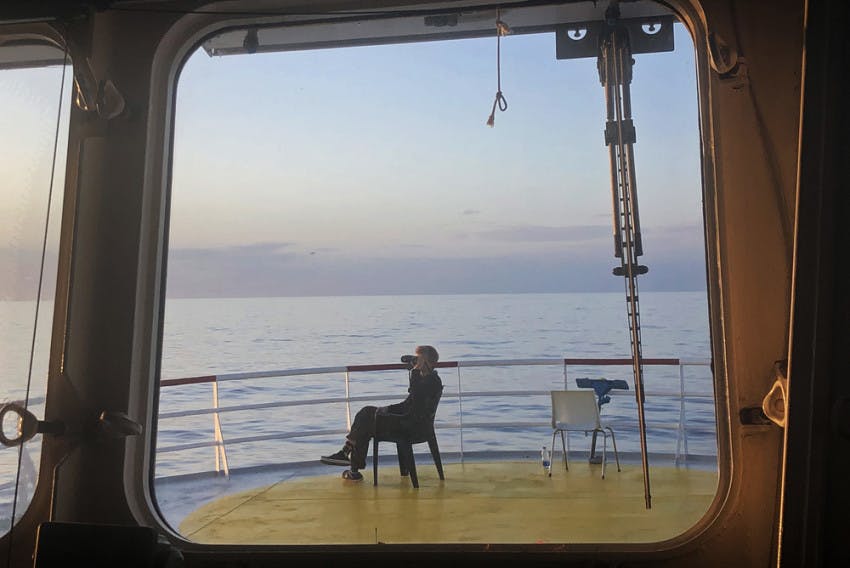
6 March 2019
The European Commission, the EU’s executive body, declares the Mediterranean migration crisis to be over.
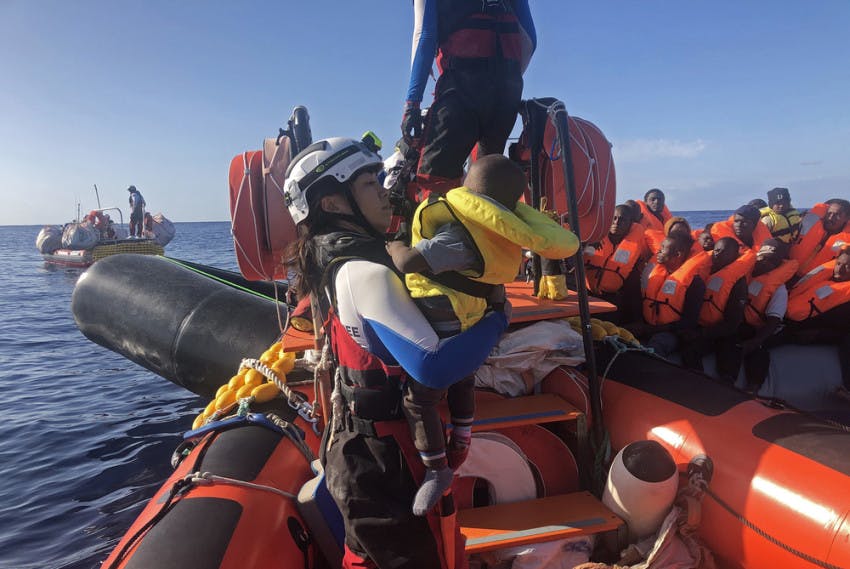
29 March 2019
EU member states decide to no longer deploy naval ships as part of Operation Sophia after failing to come to an agreement on how to share responsibility for those rescued by the mission. Operation Sophia ends in March 2020 and is replaced by Operation Irini, which is focused on enforcing a UN arms embargo on Libya, signalling the EU’s further withdrawal from search and rescue activities.
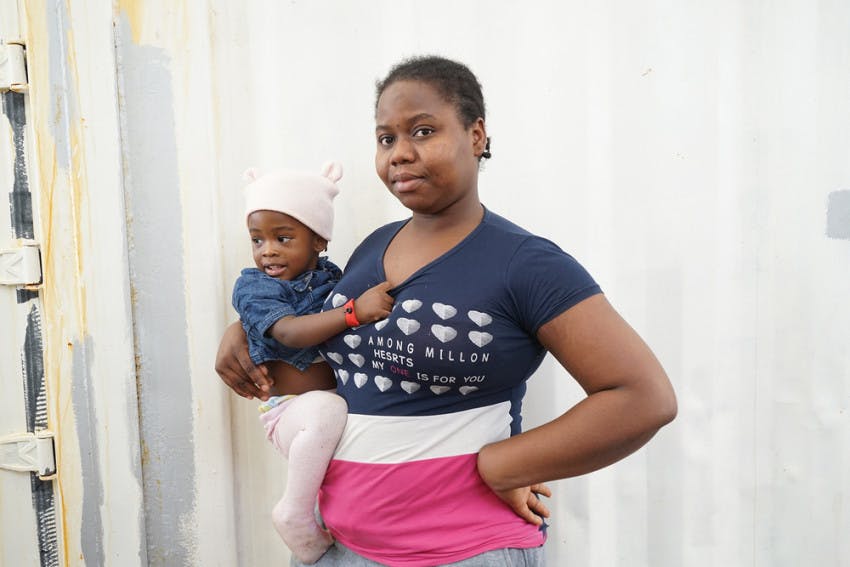
2 July 2019
At least 53 asylum seekers and migrants are killed and 130 wounded when a detention centre in the Libyan coastal town of Tajoura is bombed. People in such centres find themselves on the front lines of a battle between rival factions for control of Libya’s capital, Tripoli. The bombing once again puts a spotlight on the dire conditions and human rights abuses faced by asylum seekers and migrants in Libya.
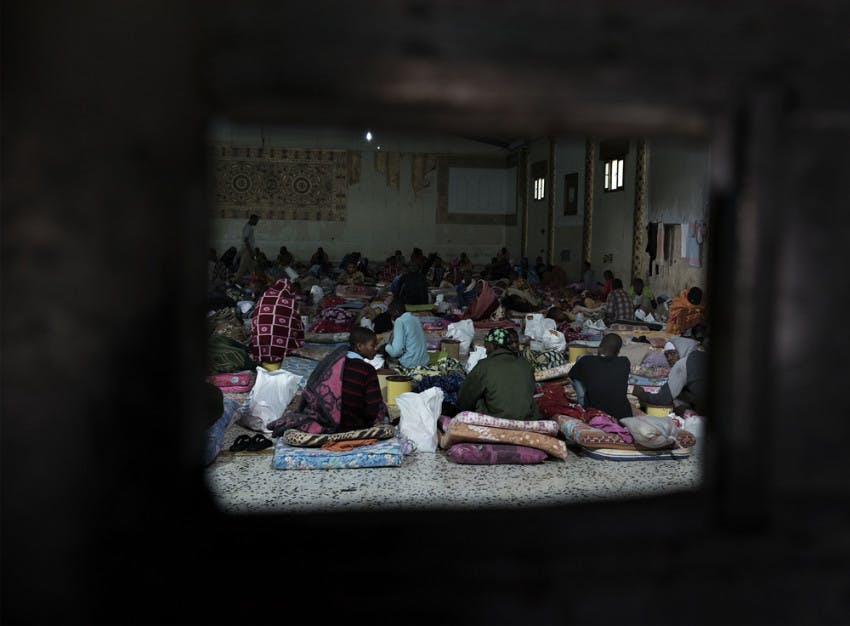
5 August 2019
Italy adopts a security decree drafted by Salvini that cements his “closed ports policy” into law. Under the decree, the interior ministry can block ships suspected of violating Italian immigration law from entering Italian water, and search and rescue ship captains can be fined up to one million euros and have their ships seized if they enter Italian water without authorisation. A couple of days later, Italy’s governing coalition collapses, and Salvini is pushed into the opposition.
7 April 2020
Hit hard during the first wave of the pandemic, Italy declares its ports unsafe for people rescued by search and rescue NGOs due to the health emergency facing the country. Malta follows suit and allegedly hires private fishing boats to return rescued asylum seekers and migrants to Libya. Throughout the summer, both countries respond slowly – or entirely ignore – emergency calls from boats in distress at sea, and Italy impounds five NGO search and rescue boats for varying lengths of time over the rest of the year.
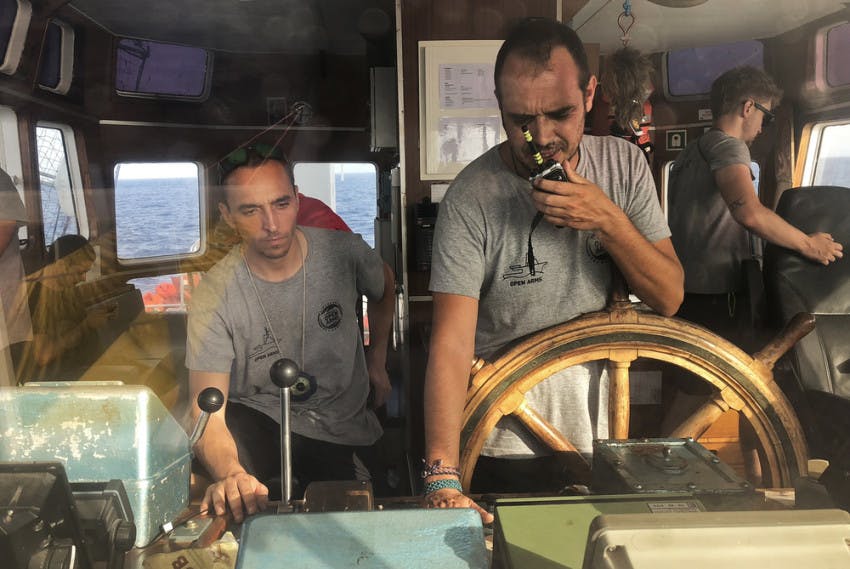
23 September 2020
The EU introduces a New Pact on Migration and Asylum that attempts to resolve long-standing grievances between member states over who should be responsible for hosting people rescued at sea by introducing a system of mandatory solidarity. The proposal allows member states to either relocate people deemed likely to receive asylum or sponsor the repatriation of rejected asylum seekers, but it is widely criticised by civil society groups.
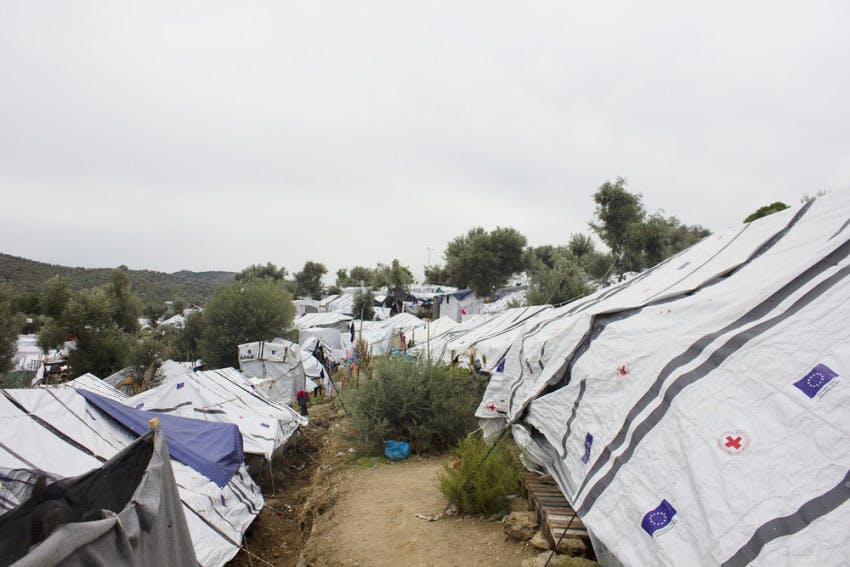
30 September 2020
Abou, a 15-year-old from the Ivory Coast, dies after being urgently evacuated from a ferry used by Italian authorities to quarantine asylum seekers and migrants to a hospital in Sicily. His death is the latest in a series of troubling incidents connected to the ferries and intensifies questions about the quality of medical care, living conditions, and other human rights concerns related to the boats.
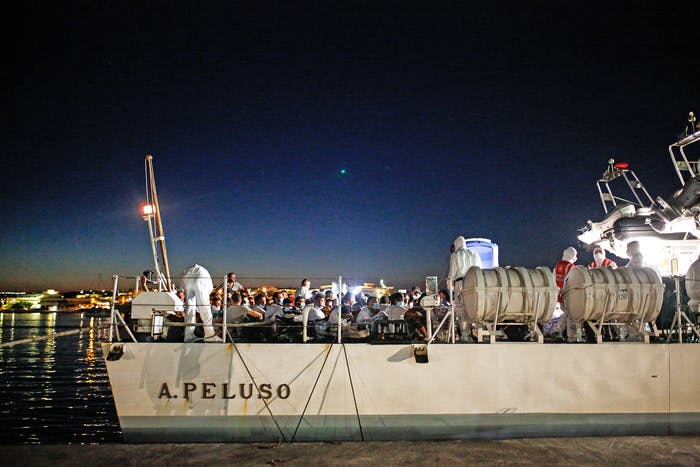
3 October 2020
A trial for kidnapping charges brought against Salvini opens in Sicily. The charges stem from a 2019 incident when Salvini prevented 116 asylum seekers and migrants rescued by an Italian Coast Guard ship from disembarking in Italy. If convicted, Salvini faces up to 15 years in prison.
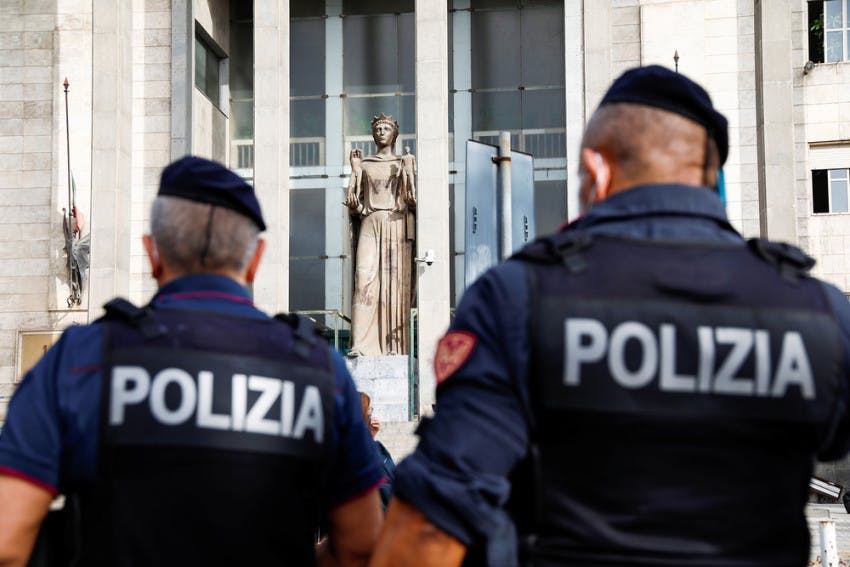
7 October 2020
The Italian government, which took office in September 2019, passes a new immigration decree, amending the security decree put forward by Salvini in 2019. It lowers fines for NGO search and rescue crews that fail to comply with Italian authorities, but while rights groups view it as a positive step, it’s not the entirely clean break from Salvini’s policies they were hoping for.
31 December 2020
The Spanish search and rescue NGO Open Arms rescues 169 people adrift in a wooden boat in international waters north of Libya on New Year’s Eve and another 96 people several days later. In the first week of January 2021, more than 160 people are intercepted by the Libyan Coast Guard and taken back to detention centres in the country. At least 15 others go missing at sea and are presumed dead.
